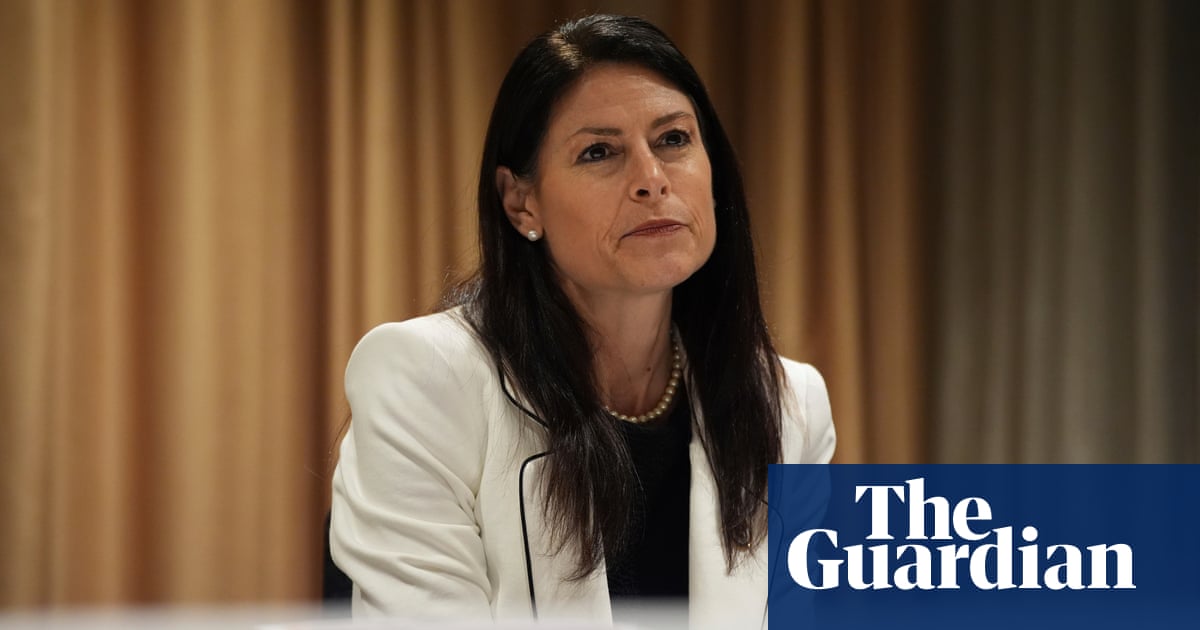Michigan’s attorney general, Dana Nessel, announced on Monday that she was dropping all charges against seven pro-Palestinian demonstrators arrested last May at a University of Michigan encampment.
The announcement came just moments before the judge was to decide on a defense motion to disqualify Nessel’s office over alleged bias. Defense attorney Amir Makled said the motion largely stemmed from anOctober Guardian reportdetailing Nessel’s extensive personal, financial and political connections to university regents calling for the activists to be prosecuted.
“This was a case of selective prosecution and rooted in bias, not in public safety issues,” Makled added. “We’re hoping this sends a message to other institutions locally and nationally that protest is not a crime, and dissent is not disorder.”
Nessel’s office isstill moving forwardwith cases involving the alleged off-campus vandalization of the home and workplace of several university leaders. A handful of other cases against campus protesters still have not been dropped, but Makled said he was hopeful they would be.
The protesters and their supporters, among them the US representative Rashida Tlaib, had previously alleged bias in Nessel’s office, arguing that the university recruited her because she was a political ally.
The Guardian’s investigation revealed concrete evidence of conflicts that defense attorneys argued factored into the prosecutions. Among the findings, the story revealed Nessel’s office charged pro-Palestinian protesters at a higher rate than other state prosecutors.
Nessel was recruited by university regents, who were frustrated by local prosecutors’ unwillingness to crack down on most of the students arrested, to take over the case and file charges, three people with direct knowledge of the decision told the Guardian at the time.
The investigation also found that six of eight regents contributed more than $33,000 combined to Nessel’s campaigns. Additionally, her officehireda regent’s law firm to handle major state cases, and the same regentco-chairedher 2018 campaign. Meanwhile, Nessel received significant campaign donations from pro-Israelstate politicians, organizations anduniversity donorswho over the last year havevocally criticizedGaza protests, records show.
In September, just days before Nessel announced the charges, a regent posted on Instagram apictureof himself with Nessel and thepro-Israelstate representative Jeremy Moss, anotheroutspokencriticof Gaza protests, at an event for the Michigan Jewish Democratic caucus with the caption “grateful for these two”.
The university, some regents, and Nessel at the time strongly denied that she was recruited, or that the connections influenced the investigation.
Makled said the judge had told him he was leaning toward granting an evidentiary hearing on the bias allegation, which would have opened Nessel’s office to discovery, or the requirement to turn over evidence.
“I think she didn’t want to open the can of worms that was coming her way,” Makled added.
The Guardian has reached out to Nessel for comment. In a media statement sent out this morning, her office lambasted the court for moving slowly on the case, and called the bias allegations “baseless and absurd”.
“The motion for recusal has been a diversionary tactic which has only served to further delay the proceedings,” it added. It also cited the impropriety of the Jewish Federation, a pro-Israel advocacy group, directly sending a letter to the judge defending Nessel, which the statement said contributed to a “circus-like atmosphere to these proceedings”.
The Guardian identified about 2,800 citations, charges or summonses that were brought or requested against protesters in a dozen cities across the country as of late 2024. Most of thosewere droppedor dismissed.
Makled called Nessel’s decision “a victory for the constitution”.
